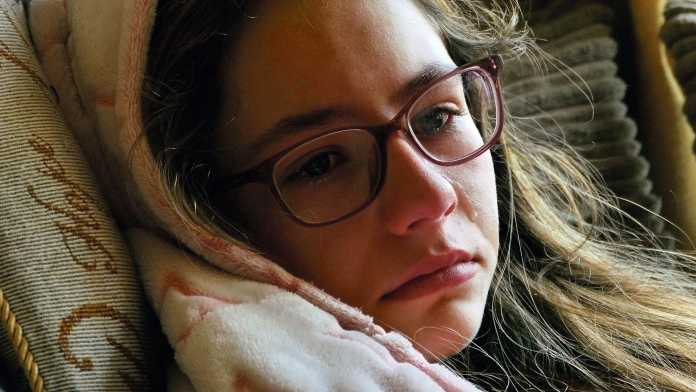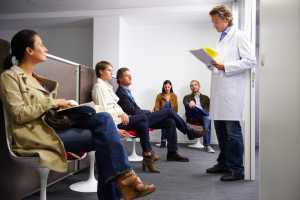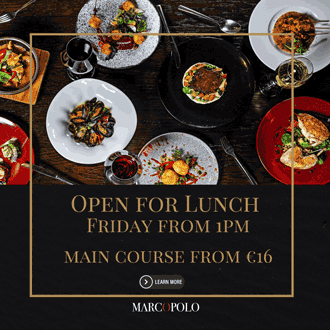
It’s not supposed to be like this
 I hate going to the doctor, really hate it. The oppressive silence of the waiting room as you wait for your name to be called out. Furtively shielding your face whenever someone coughs or snuffles. The cold steel of the stethoscope as you breathe in and out like a beached whale. Then the diagnosis, fearing the worst, truly believing that it must be terminal, before being given a cursory prescription and instructions not to leave the bed till next week.
I hate going to the doctor, really hate it. The oppressive silence of the waiting room as you wait for your name to be called out. Furtively shielding your face whenever someone coughs or snuffles. The cold steel of the stethoscope as you breathe in and out like a beached whale. Then the diagnosis, fearing the worst, truly believing that it must be terminal, before being given a cursory prescription and instructions not to leave the bed till next week.
It’s an ordeal most of us try and avoid. However, the reason I hate going to the doctor has nothing to do with invasive bits of metal or the well-thumbed magazines – which are never about football or music or anything interesting. I hate going because being there makes me feel guilty. Whenever I visit my GP I always feel like an unnecessary distraction, neither patient nor person, just another name to be crossed off the list.
This was highlighted during my most recent visit. Having been called relatively early, I was secreted to a small room, left sitting on a chair with the door open, giving me an overview of the entire operation at work. It was mostly just my fellow sufferers, trudging up and down the stairs, all with grievances of their own, all eager to be seen and heard.
As I waited for someone with the correct qualifications to accompany me in the cramped, stuffy little room, I heard something I’d never heard in a doctor’s surgery before. It came from the mouth of one of the GPs, one of the men responsible for ensuring that all those going up those stairs came down them in better spirits. As he whizzed past my room, he called back to those in the office, to the receptionists, nurse, and other doctors:
“Remember lads,” he said, “speed is of the essence today.”
As if to prove his point he then took the stairs two at a time, bounding forward like a man who’s just been informed that tonight might just be his lucky night.
I shouldn’t have been surprised, not in this current climate, but I was.
Suffice to say, when my turn finally came around, I was at pains to ensure I didn’t slow the process down. I reeled off my symptoms in one go, answered all questions succinctly and summarily, and scarpered, barely pausing to snatch the prescription from the hands of the over-worked receptionist.
The overriding feeling as I recuperated back home, in the safety of my own bed, was that I was glad I wasn’t properly sick, glad I didn’t have to submit myself fully to a system where alacrity, not efficacy, is key. I may have only got a snapshot of life within the Irish medical system, but I had seen enough to know that to get sick in this country is to do so at your peril.

This fact was rammed home, with heart-rending urgency, by RTÉ this week. It examined the lives of those less fortunate than you or I, those not lucky enough to be seen by a relevant consultant in an appropriate length of time, those who reside, or in some cases, think they reside, on lengthy waiting lists, their conditions slowly depreciating as they await the operation which will enable them to start living again rather than merely existing.
Among those featured was Megan Halvey-Ryan, a 13 year-old Limerick girl for whom speed is very much of the essence. Diagnosed two years ago with scoliosis – an abnormal curvature of the spine – Megan has been denied the operation which would correct her condition, instead being forced to wait, in devastating limbo, as her plight worsens.
Without corrective surgery Megan’s condition has deteriorated, she now needs a different procedure, a more complex one, a more dangerous one.
And still she waits.
Yet rather than feel sorry for herself or lambast those who have placed her in this impossible situation, Megan’s primary concern was her family. Beaten down on a daily basis, deprived of all hope, she worried about being a burden, about placing more stress on loved ones who wished only to see her get better.
Can you imagine that? A 13 year-old child, in chronic pain and suffering, who just wants to make she’s not being too much of a nuisance at home?
Couple that with the reaction of Offaly woman, Betty Rogers, who having received a call informing that she would be meeting with a consultant, reacted in much the same way that a lottery entrant might as the final winning ball emerged.
This is what our health system has done to sick people in this country; it has made them feel guilty and apologetic, it has crushed their spirit to the extent that news, any kind of news, is greeted with shock and awe, joyous celebration as they envisage an end to their torment.
It’s not supposed to be like this. We’re supposed to be a wealthy country, a place where others, from poorer nations, flee in the hope of a better life. Woe betide any grateful newcomers who should fall ill, they will quickly discover that, contrary to what they had been told, there is a surprising lack of knickers beneath those warm fur coats.

In the aftermath of Living on the List, with viewers still reeling from what they had witnessed, Claire Byrne gathered some of those featured in the documentary. Joining them were a handful of eager politicians and, fall-guy for the night, Liam Woods, the HSE’s National Director for Acute Hospitals.
Not present was Minister for Health, Simon Harris who, wisely, chose to watch the documentary in private before reeling off a few sound bytes and heading for the hills. However, in this instance, the Minister could not really be held accountable, not fully anyway. New to the job, all he can do is what his predecessors did, massage the numbers, protect his own interests and hope to emerge unscathed.
Because this is a problem that runs deep, deeper than the Minister for Health, deeper than the Taoiseach or the Government presiding over this country. It’s a total systematic failure, one which has slowly evolved over the years, starting out as a minor triviality, before morphing into the great behemoth Harris faces down today.
How to slay this beast and shorten those waiting lists was discussed at great length by Claire Byrne and the live audience. Everyone had their say, from the clinicians, to the patients, to the mumbling, stumbling, shambles of a man that was Mr Woods.
And yet, in true Irish style, the one person with experience in this field, the one man who might have been able to offer a solution, and a smidgen of hope to those continuing to wait, was restricted to just one brief contribution. Gerry Robinson, a man with intimate knowledge of the British NHS, a man who presented a documentary about fixing the NHS, was mostly ignored.
Robinson pointed to the levels of mismanagement prevalent in the HSE, offered a different insight; ears pricked up in living-rooms all over the country. What was this? Something new? Some forward-thinking? Sadly, we never got to find out, the echo chamber resumed control, the white noise returned, and those on the lists sighed in frustration as they waited for their numbers to come up.
Out of the frying-pan

Alan, who now, thankfully, has had an operation to remove the tumour in his brain, was really going for it; vast plumes of smoke circled around him as he sat on the sofa, his Vape Pen barely leaving his lips before it was right back there again.
I couldn’t help but be concerned for the man, surely the last thing he needed was toxic fumes travelling through his airwaves, carcinogens polluting his overworked innards.
But I needn’t have worried. Because, according to a report released this week, vaping is practically harmless. In fact, it’s almost good for you. That’s right, all that smoke, all those nasty chemicals, they’re good for you, like chowing down on Broccoli or going for a brisk walk.
Or at least that’s how the news was reported. Starting out by saying that vapourisers are not as harmful as cigarettes, the report went on to say that those attempting to wean themselves off nicotine should most certainly try the ole’ vaping, and that those funky, colourful little pens had only 97% of the bad stuff found in nasty toitínís.
But nowhere did it say that if you don’t smoke at the moment then you probably shouldn’t take up vaping, even if they come in loads of different flavours and make you look ever so cool.
Oh, just a side-note, the study came pre-approved by the Irish Vape Vendors Association (IVVA). Funny that.









